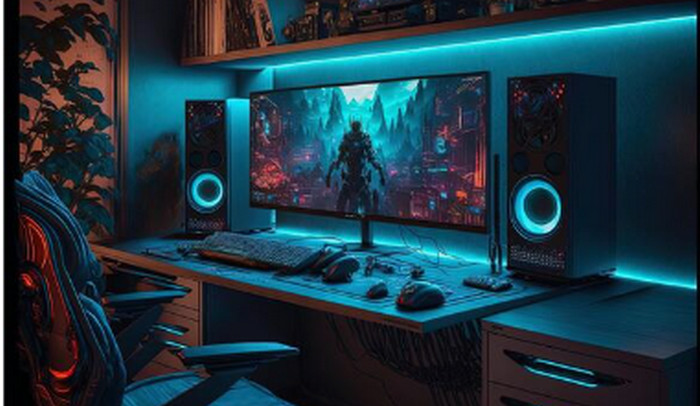There are a few important things to take into account when shopping for a gaming PC in order to obtain the most value and performance for your money. The following are the key elements and attributes to search for:
Processor (CPU):
Brand and Model: Seek for contemporary AMD (Ryzen 5, 7, 9) or Intel (i5, i7, i9) processors.
Threads and Cores: Multitasking and performance in multicore games are enhanced by additional cores and threads.
Clock Speed: Better performance is typically associated with higher clock speeds (measured in GHz).
graphics card (GPU):
Brand and Model: Popular options are NVIDIA (such as the GTX or RTX series) and AMD (such as the Radeon RX series).
VRAM: For 1080p gaming, aim for at least 4GB of VRAM; 6GB or more is recommended for greater resolutions or future-proofing.
Ray Tracing and Deep Learning Support System (DLSS): These NVIDIA RTX card features improve performance and visuals.
RAM stands for Random Access Memory.
Capacity: For gaming, a minimum of 16GB of RAM is advised. For future-proofing and multitasking, 32GB or more is recommended.
Speed: RAM that is faster (expressed in MHz) can enhance performance, particularly in games that use a lot of memory.
Keep in mind:
SSD: For quick load speeds and responsive system operation, a solid-state drive (SSD) is necessary. Look for 500GB or more if you intend to install a large number of games.
HDD: More storage for bigger files and video games can be obtained with a secondary hard drive (HDD).
Refrigeration:
Air or Liquid Cooling: Reliable cooling techniques keep equipment from overheating and preserve functionality. Liquid cooling may be advantageous for high-end systems, but air cooling is plenty for most gamers.
Example Airflow: All components in a case with enough airflow stay cool. Search for cases that offer several ventilation options and fans.
Energy Source (PSU):
Wattage: Verify that the PSU has adequate power to run all of the components, leaving room for future additions. For most builds, 500–750W is a suitable range.
Efficiency: For greater dependability and efficiency, look for a PSU with an 80 Plus rating (Bronze, Silver, Gold, or Platinum).
Motherboard:
Make sure the motherboard has enough slots for RAM, storage, and any future upgrades, and that it is compatible with your CPU.
Features: Extra features like Bluetooth, Wi-Fi, and several USB ports can be helpful.
Keep an eye on:
Resolution: Better visual quality is achieved at higher resolutions (1080p, 1440p, and 4K). Make sure the resolution of the monitor matches the power of your GPU.
Refresh Rate: Smoother gameplay is achieved with higher refresh rates (120Hz, 144Hz, or higher), particularly in fast-paced games.
Response Time: Motion blur and ghosting are less common with shorter response times (1 ms to 5 ms).
auxiliary parts:
Keyboard and Mouse: High-DPI mice and mechanical keyboards enhance game performance.
Headset: In multiplayer games, a decent headset improves communication and immersion.
Adaptability to change:
Think about next updates. Make that the motherboard and case can accommodate updated or additional RAM, storage, and GPUs.
You can construct or buy a gaming PC that satisfies your present gaming requirements and leaves space for expansion by keeping these factors in mind.
